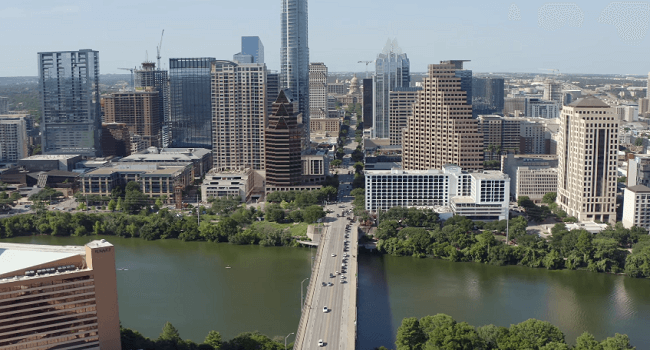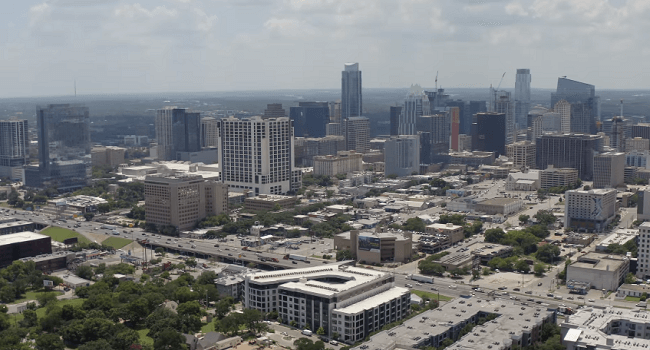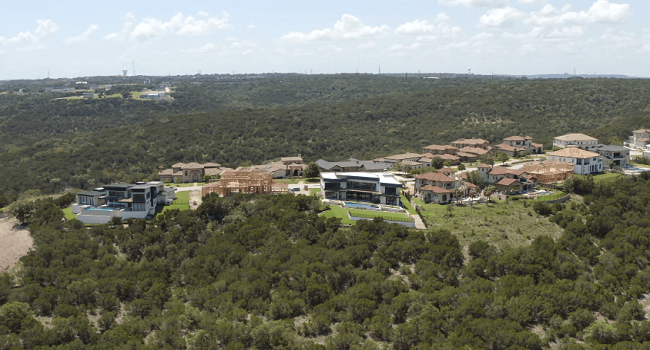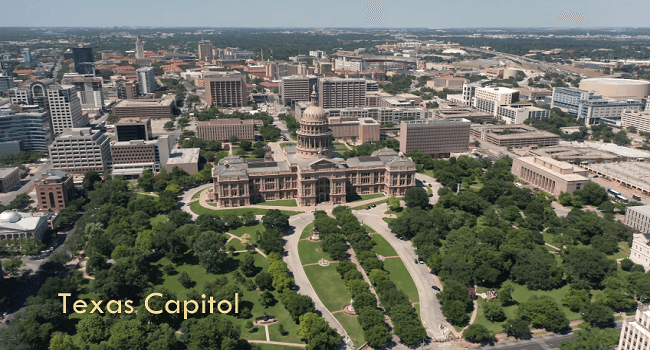Is Austin Texas A Good Place to Live – Are you considering a move to Austin, Texas? Wondering if the city lives up to its reputation as a great place to call home? Look no further! In this article, we’ll delve into the question, “Is Austin, Texas a good place to live?” and provide you with insights that can help you make an informed decision.
Austin, the vibrant capital of the Lone Star State, has captured the hearts of many with its unique blend of culture, music, and outdoor adventures.
From its thriving music scene to its booming technology industry, the city offers a wide range of opportunities and experiences that make it an attractive destination for both residents and visitors.

When it comes to livability, Austin consistently ranks among the top cities in various national surveys. But what makes it stand out from the crowd? Let’s explore some of the key factors that contribute to Austin’s appeal and why it is often considered a good place to live.
Cultural richness is deeply ingrained in Austin’s DNA. The city is renowned for its live music, earning it the title of the “Live Music Capital of the World.” With a plethora of venues showcasing diverse genres, Austin’s music scene caters to every taste.
Beyond music, Austin hosts numerous festivals and events, including the internationally acclaimed South by Southwest (SXSW) festival, which celebrates the intersection of music, film, and technology.
In terms of economic opportunities, Austin shines as well. The city is home to a thriving tech industry, earning it the nickname “Silicon Hills.” Major technology companies and innovative startups call Austin their headquarters, offering residents a range of job prospects.
The presence of the University of Texas at Austin also contributes to the city’s intellectual vibrancy and acts as a catalyst for research and development.
The city boasts scenic trails, picturesque parks, and the refreshing waters of Lady Bird Lake, providing ample opportunities for hiking, biking, kayaking, and other outdoor activities.
Read Also: Is Houston Texas A Good Place to Live?
While Austin’s growth and popularity bring undeniable benefits, it also faces challenges such as rising housing costs and traffic congestion.
So, is Austin, Texas a good place to live? This article will guide you through the various aspects of living in Austin, shedding light on its strengths and considerations to help you determine whether this dynamic city is the perfect fit for you.
Pros and Cons of Living in Austin, Texas

Austin, Texas, is a city that has captured the imagination of many with its vibrant culture, thriving music scene, and bustling tech industry. If you are considering making Austin your home, it’s important to weigh the pros and cons to ensure it aligns with your lifestyle and preferences.
Here we will review the pros and cons of living in Austin, Texas.
Pros of Living in Austin, Texas:
1. Buying a Home in Austin Is a Great Investment
Austin’s real estate market has seen significant growth in recent years, making it a favorable city for homeowners. The value of properties in Austin has been on the rise, providing potential for long-term investments and equity.
Read Also: Pros and Cons of Living in San Antonio, TX
2. Austin Is the Greenest City in Texas
With its commitment to sustainability and green initiatives, Austin has earned the reputation of being the greenest city in Texas. The city boasts numerous parks, nature trails, and outdoor recreational areas, allowing residents to enjoy a healthy and environmentally conscious lifestyle.
3. Healthy Job Market
Austin’s job market is thriving, offering a wide range of opportunities across various industries. The city is a hub for technology companies, with major players like Dell, IBM, and Apple having a strong presence. Additionally, Austin’s diverse economy provides stability and growth potential.
4. Austin Is a Major Hub for Startups
If you have an entrepreneurial spirit, Austin is an ideal place to launch your startup. The city fosters a supportive ecosystem for new businesses, with resources such as networking events, incubators, and accelerators readily available.
5. Austinites Are Happy People
Austin consistently ranks high in happiness surveys. The city’s friendly and laid-back atmosphere, coupled with a strong sense of community, contributes to the overall happiness of its residents.
6. It’s a Great Place to Get Outside
With its warm climate and abundant natural beauty, Austin offers a plethora of outdoor activities. Residents can enjoy hiking, biking, kayaking, and swimming in the refreshing waters of the city’s iconic Barton Springs Pool or Lady Bird Lake.
7. The Food and Beer
Austin is a foodie’s paradise, with a vibrant culinary scene that caters to all tastes. The city is famous for its Tex-Mex cuisine, barbecue joints, food trucks, and trendy restaurants. Additionally, Austin boasts a thriving craft beer and microbrewery scene, providing ample options for beer enthusiasts.
Read Also: Pros and Cons of Living in Kyle, TX
8. The Music
As the “Live Music Capital of the World,” Austin is renowned for its diverse music scene. From live concerts to music festivals, there is always a rhythm to be found in the city. Austinites embrace music as an integral part of their culture and are passionate supporters of local and international artists.
9. Austin Residents Are Educated
The city is home to the University of Texas at Austin, one of the nation’s top universities. This academic influence extends beyond the university, fostering a culture of curiosity, innovation, and lifelong learning among Austin residents.
Cons of Living in Austin, Texas:
1. Austinites Are Resistant to Rapid Growth
While Austin’s growth has brought many benefits, it has also faced challenges. Some long-time residents express concerns about rapid growth and its impact on the city’s character, infrastructure, and affordability.
2. It’s Hot
Austin’s climate is characterized by hot summers, with temperatures often exceeding 90°F (32°C). The heat can be intense and may not be suitable for everyone’s preferences.
3. Austin Is a Driving City
Public transportation options in Austin are limited compared to other major cities. The majority of residents rely on personal vehicles for daily commuting, which can contribute to traffic congestion and longer commute times.
Read Also: Pros and Cons of Living in Abilene, TX
4. The Traffic
As the city grows, traffic congestion has become a common complaint among Austinites. Rush hour can be frustrating, especially on major highways and during major events or festivals.
5. Limited Big Sports
While Austin offers various recreational activities, it lacks major professional sports teams like those found in larger cities. Sports enthusiasts may need to travel to nearby cities to catch major sporting events.
6. Austin Is a College Town
The University of Texas at Austin is a prominent institution within the city, and its influence can create a college town atmosphere. This may be a pro for some, but others may prefer a more diverse population mix.
7. Lacks Cultural Diversity
Compared to some larger metropolitan areas, Austin has been criticized for its relative lack of cultural diversity. While efforts are being made to promote inclusivity, it’s important to consider if a diverse cultural environment is a priority for you.
8. The Housing Market
As Austin’s popularity continues to grow, the demand for housing has increased. This has led to rising housing costs and decreased affordability, making it challenging for some residents to find suitable housing within their budget.
Read Also: Pros and Cons of Living in Temple, TX
Living in Austin, Texas, comes with a unique blend of advantages and considerations. By weighing the pros and cons, you can make an informed decision that aligns with your priorities and aspirations.
Best Neighborhoods to Live in Austin, TX

When it comes to choosing a neighborhood to live in Austin, Texas, you have a wide range of options that cater to different lifestyles and preferences. Here are some of the best neighborhoods in Austin:
1. Barton Hills
Located near the Barton Creek Greenbelt, Barton Hills offers a peaceful suburban atmosphere with scenic views. It’s known for its beautiful homes, proximity to outdoor recreation, and its sense of community.
2. Downtown Austin
Living in downtown Austin means being at the heart of the city’s vibrant culture, music, dining, and nightlife scenes. It’s a perfect choice for those who want to be in the midst of the action and enjoy the convenience of walkability.
3. Mueller
Situated just three miles from downtown, Mueller is a master-planned community known for its sustainable design, green spaces, and modern amenities. It offers a mix of residential, retail, and office spaces, along with parks, trails, and a farmers’ market.
4. Teravista
Located in Round Rock, just north of Austin, Teravista is a family-friendly neighborhood known for its well-maintained homes, golf courses, and community amenities. It offers a suburban setting with easy access to shopping, schools, and outdoor activities.
Read Also: Pros and Cons of Living in Longview, TX
5. West Lake
Nestled in the rolling hills west of downtown, West Lake is an upscale neighborhood known for its luxury homes, excellent schools, and beautiful views of Lake Austin. It offers a tranquil and exclusive residential environment.
6. Travis Heights
Situated south of Lady Bird Lake and just minutes from downtown, Travis Heights is a highly desirable neighborhood known for its historic homes, tree-lined streets, and proximity to popular parks and local businesses.
7. Cherrywood
Located in East Austin, Cherrywood is a diverse and eclectic neighborhood with a mix of charming bungalows and modern homes. It has a strong sense of community and is known for its local shops, restaurants, and coffee houses.
8. Tarrytown
Tarrytown is an upscale neighborhood situated west of downtown Austin. It features elegant homes, tree-lined streets, and a close-knit community. Tarrytown offers easy access to outdoor recreational areas and is known for its top-rated schools.
9. Cedar Park
Located northwest of Austin, Cedar Park is a rapidly growing suburban community known for its family-friendly environment, excellent schools, and numerous parks. It offers a range of housing options and is ideal for those seeking a quieter suburban lifestyle.
10. Belterra
Situated southwest of downtown, Belterra is a master-planned community known for its beautiful homes, scenic surroundings, and ample green spaces. It offers a relaxed suburban atmosphere with access to hiking trails and natural attractions.
11. Round Rock
Located just north of Austin, Round Rock is a fast-growing city with a diverse range of neighborhoods. It offers affordable housing, excellent schools, and a thriving community. Round Rock is home to major employers and has a charming downtown area.
Read Also: Pros and Cons of Living in Odessa, TX
12. Hyde Park
Situated north of the University of Texas at Austin, Hyde Park is a historic neighborhood known for its eclectic mix of homes, tree-lined streets, and a bohemian vibe. It offers a unique blend of residential charm and proximity to the university and downtown.
13. Pflugerville
Located northeast of Austin, Pflugerville is a suburban community with a growing population. It offers affordable housing options, good schools, and a family-friendly environment. Pflugerville has a range of amenities and recreational facilities.
These neighborhoods in Austin, Texas, provide a glimpse into the diverse options available for residents. Each neighborhood has its own unique characteristics, amenities, and attractions, allowing you to find a place that suits your lifestyle and preferences.
Is it a good idea to move to Austin, Texas?
Moving to Austin, Texas can be a great idea for many reasons. The city offers a thriving job market with opportunities in various industries, particularly in the technology sector. Compared to other major tech hubs, the cost of living in Austin is relatively lower, making it an attractive option for professionals and families.
Additionally, Austin’s vibrant music scene, festivals, outdoor activities, and diverse culinary experiences contribute to its unique charm and quality of life.
Overall, if you’re seeking a dynamic city with ample job prospects, cultural offerings, and a lower cost of living, moving to Austin, Texas could be a fantastic choice.
Read Also: Pros and Cons of Living in El Paso, TX
Is Austin, TX expensive to live in?

Living in Austin, TX can be relatively expensive compared to the state and national averages. The cost of living index in Austin is 9% higher than the state average and 1% higher than the national average.
Housing costs, in particular, are 16% higher than the national average, while utilities tend to be slightly more affordable at about 6% less expensive than the national average.
It’s important to consider these factors when planning your budget and determining your affordability in Austin.
Is Houston or Austin better to live in?
When comparing Houston and Austin as places to live, one important factor to consider is safety. Austin has lower overall crime rates, including both violent and property crimes, compared to Houston, making it a safer option.
However, other aspects such as job opportunities, cost of living, amenities, and personal preferences should also be taken into account when determining which city would be better suited for your lifestyle and needs.
Is it cheaper to live in Dallas or Austin?
In terms of the cost of living, Austin is ranked 71 out of 500 U.S. metro areas, while Dallas has a cost of living that is higher than the national average. This suggests that Austin may be relatively cheaper to live in compared to Dallas.
However, it’s important to note that the cost of living can vary depending on your circumstances, such as housing choices, lifestyle preferences, and job opportunities.
Conducting thorough research and comparing specific factors that are important to you can help determine which city would be more affordable based on your unique situation.
Is Austin, Texas a safe place to live?
Yes, in 2023, Austin, Texas is considered a safe place to live. The crime rate in Austin is lower than the national average, and when compared to cities of similar size, it ranks among the safest cities in the country.
However, it’s always advisable to take standard safety precautions and be aware of your surroundings regardless of the city you reside in.
Is it better to rent or buy in Austin?
The decision to rent or buy a home in Austin depends on various factors, including your financial situation, long-term plans, and personal preferences. While Austin’s housing market is stable and growing, it can be relatively expensive to purchase a home.
According to a 2021 report by LendingTree, renting is cheaper than buying a home in Austin.
However, it’s essential to consider factors such as your desired level of stability, long-term investment potential, and the current state of the housing market when making the decision.
Consulting with a real estate professional can provide valuable insights tailored to your specific circumstances.
Final Thoughts: Is Austin Texas A Good Place to Live?
Austin, Texas offers a compelling lifestyle for individuals and families looking for a vibrant city with a thriving job market, a lower cost of living compared to other major tech hubs, and a rich cultural scene.
The city’s renowned music festivals, outdoor activities, and diverse culinary experiences contribute to its unique appeal.
While the cost of living in Austin may be higher than the state and national averages, it’s important to weigh the benefits of living in a dynamic city like Austin against the associated expenses.
Moreover, Austin’s relatively lower crime rates compared to other cities and its reputation as a safe place to live provide additional peace of mind.
Whether Austin, Texas is a good place to live depends on your preferences, priorities, and circumstances. However, considering its numerous advantages, it’s no wonder why many people find Austin to be an enticing place to call home.